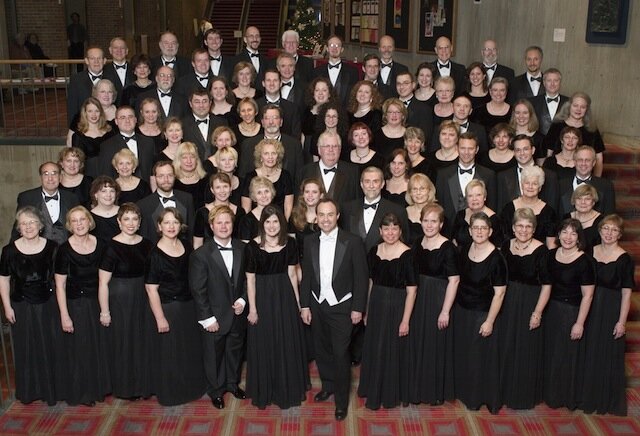The holiday concert season may already be in full swing, but there’s still a full calendar of festive musical events set to spread Christmas cheer all around the Seattle area. Our list is just a small sampling of the vast seasonal offerings at this time of year, but we guarantee that you’ll find something here for everyone, from grandma to your hipster cousin. Christmas overload? We’ve included a few non-holiday-themed offerings for yuletide-weary souls.
Dec. 13 — The perfect gift for an avid early music fan! The Tudor Choir celebrates Advent with a program of Renaissance carols and motets at the intimate Northlake Unitarian Universalist Church chapel. This is a busy month for the ensemble. On December 28, they’ll perform a hearty mix of English Christmas carols and classics at the University District’s Blessed Sacrament Church.
Dec. 13 – 14 — As the winter chill sets in, Vivaldi’s Four Seasons provides a timely reminder that the cold and grey won’t last forever. The Seattle Symphony presents two performances of this audience favorite, one on December 13 as part of the casual “Symphony Untuxed” series, and another on December 14 with regularly-tuxedoed orchestra.
Dec. 13 – 22 — Handbell ensemble Bells of the Sound performs holiday favorites at a series of concerts hosted by churches around the Puget Sound region. The 15-member group will travel from Bellingham to Poulsbo on their December tour, with stops in Seattle, Renton, Bellevue, and Lynnwood.
Dec. 13 – 23 — The Northwest Boychoir‘s annual Christmas concert combines holiday readings with favorite yuletide songs. Hear “A Festival of Lessons and Carols” at some of Seattle’s best musical venues, including St. Mark’s Cathedral and West Seattle’s Holy Rosary Church, as well as a special performance at Benaroya Hall with the Northwest Sinfonietta.
Dec 13 – 29 — Of course, the big ticket in town this holiday season is Pacific Northwest Ballet‘s Nutcracker. Each year, PNB’s production charms audiences of all ages with Tchaikovsky’s timeless score, Maurice Sendak’s gorgeous sets, and breathtaking performances from a cast of over 200 dancers. Read Pippa’s review of this year’s PNB Nutcracker production for more details about this Seattle tradition.
Dec. 14 — This year, Seattle Pro Musica‘s annual holiday concert honors Benjamin Britten. The English composer, who would have celebrated his 100th birthday this year, penned several Christmas-themed choral works, including his beloved Ceremony of Carols. The singers of Seattle Pro Musica perform this holiday favorite alongside festive pieces by contemporary composers inspired by Britten.
Dec. 14 – 15 — Take a break from the whirlwind of shopping, cooking, and decorating with Choral Arts‘ Christmas program. Boasting the motto “Not Your Typical Holiday Concert,” the performance aims to help audiences relax and unwind with a medley of ancient chant, traditional carols, and contemporary works. Guitarist Bob McCaffery-Lent performs instrumental interludes between choral pieces.
Dec. 15 — The annual performance of Handel’s Messiah is a holiday tradition for many local ensembles. But for true Handel fans, Orchestra Seattle & Seattle Chamber Singers presents Seattle’s must-see Messiah. Thought many Messiah concerts trim Handel’s lengthy score to fit into a typical two-hour program, OSSCS’ Messiah is an afternoon-long event that features the work in its entirety, ensuring that you won’t miss a note of this Christmas favorite.
Dec. 15 — For a slightly different take on Handel’s Messiah, drop by Green Lake United Methodist Church for Seattle Mandolin Orchestra‘s “Mandolin Messiah.” Hear an abbreviated version of Handel’s masterpiece performed by an all-mandolin ensemble. They’ll be joined by four vocal soloists in this unusual homage to the holiday classic.
Dec. 21 — Part public sound sculpture, part flash-mob, Phil Kline’s Unsilent Night is an annual tradition that brings a wintry soundscape to neighborhoods around the country. Each participant downloads one of Kline’s four musical tracks onto an audio device of their choosing, then gathers with the group for a musical stroll through the city streets. Beginning at Wallingford’s Good Shepherd Center, Seattle’s performance of Unsilent Night is free, open to the public, and a unique way to get into the holiday spirit..
Dec. 21 — The Medieval Women’s Choir performs a program of 12th century sacred works originating from abbeys in France, Germany, and Spain. Experience the same music that medieval legends Hildegard of Bingen and Héloise d’Argenteuil may have heard during their time as nuns at these abbeys.
Dec. 24 — Join one of Seattle’s newest orchestras for a Christmas Eve celebration. Ensign Symphony & Chorus presents the second concert of their inaugural season at Benaroya Hall, where they’ll treat audiences to a medley of sacred and secular holiday favorites.
Dec. 28 – Jan. 4 — Ring in the new year with Beethoven’s Ninth Symphony and the good tidings of “Ode To Joy.” This year, Seattle Symphony & Chorale pairs the Ninth with another classic, Brahms’ Variations on a Theme of Joseph Haydn.
Dec. 29 — After a month of Christmas carols, there’s nothing like chamber music to celebrate the end of another joyous holiday season. The Byron Schenkman & Friends concert series continues with a collection of Vivaldi concertos. Harpsichordist Schenkman will be joined by a chamber orchestra of baroque winds and strings for this performance at Benaroya Hall’s cozy Nordstrom Recital Hall.
